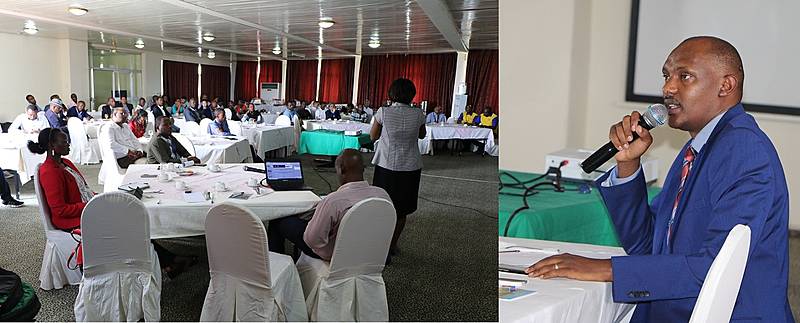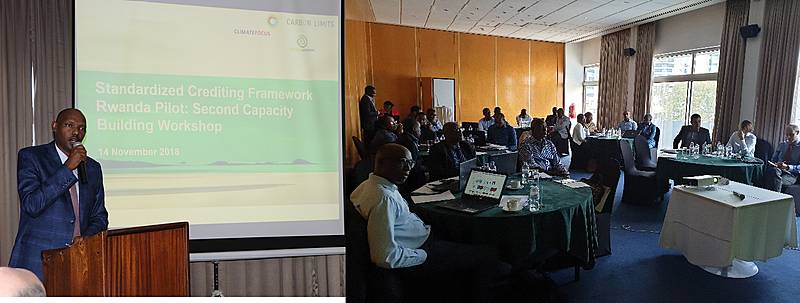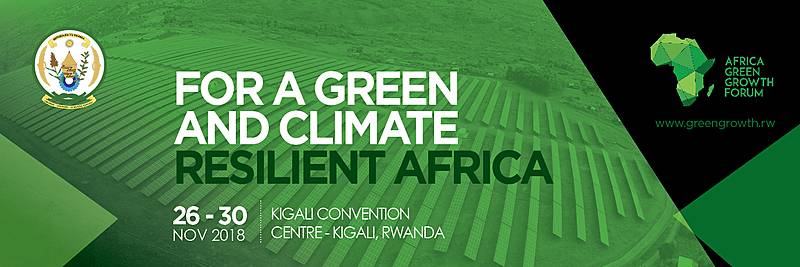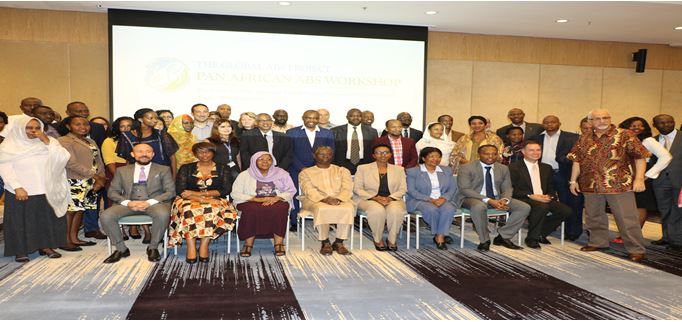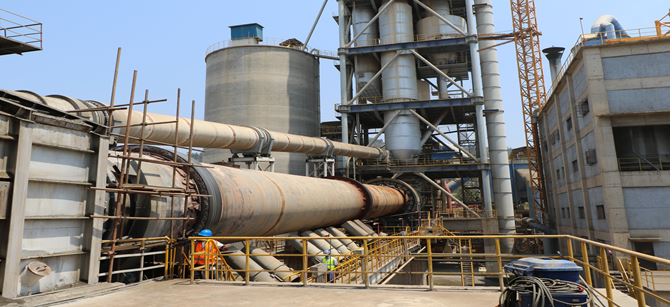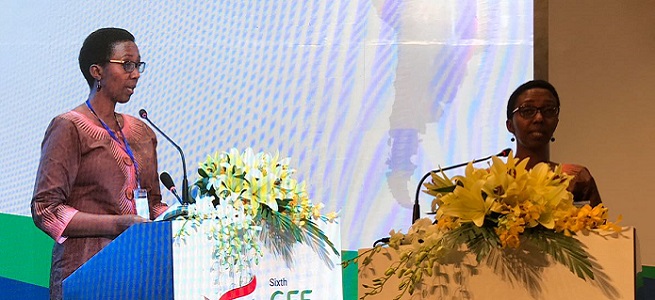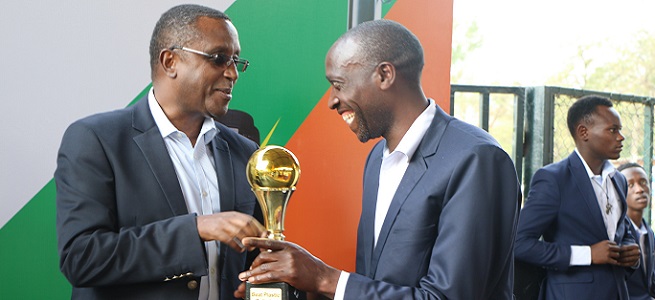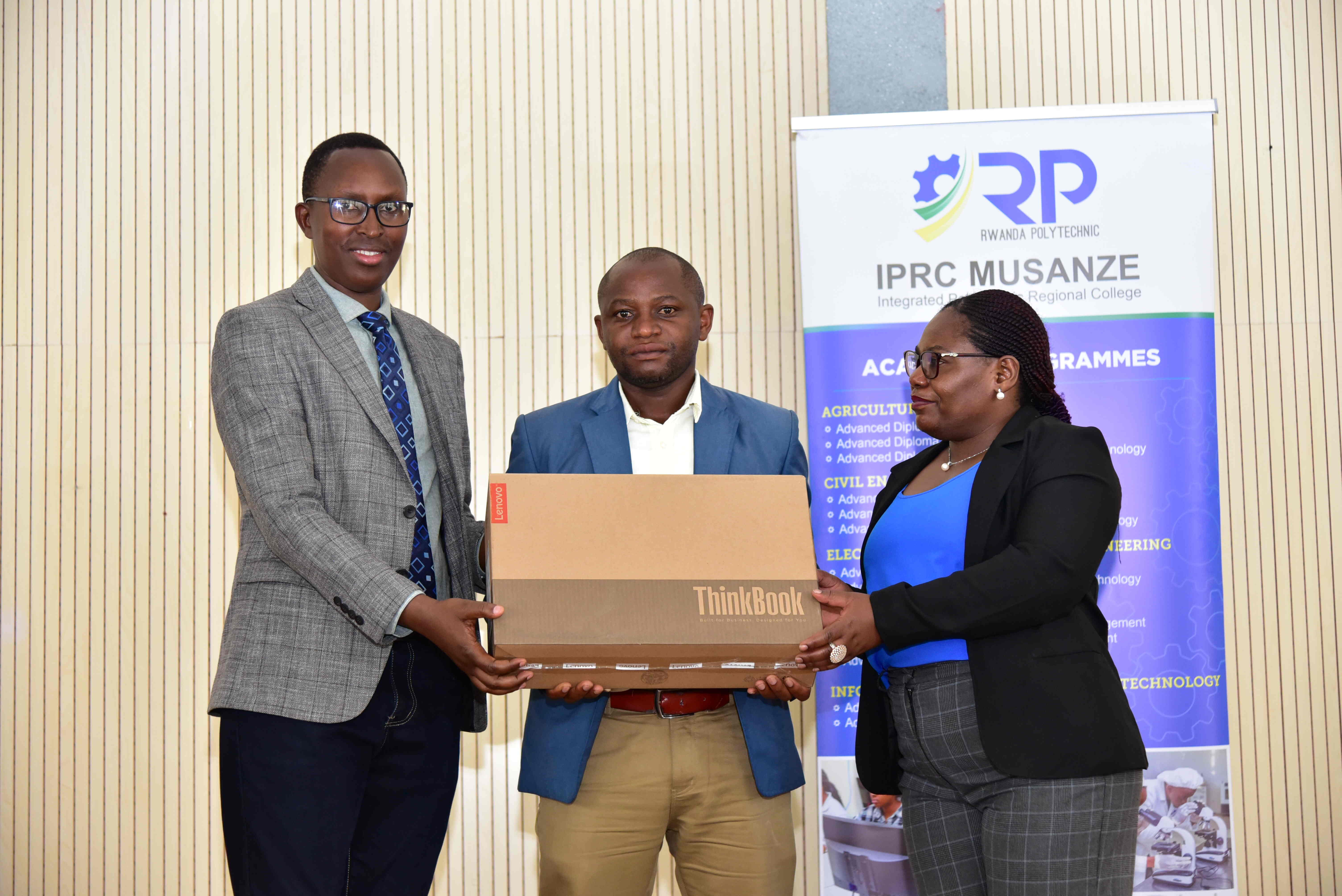
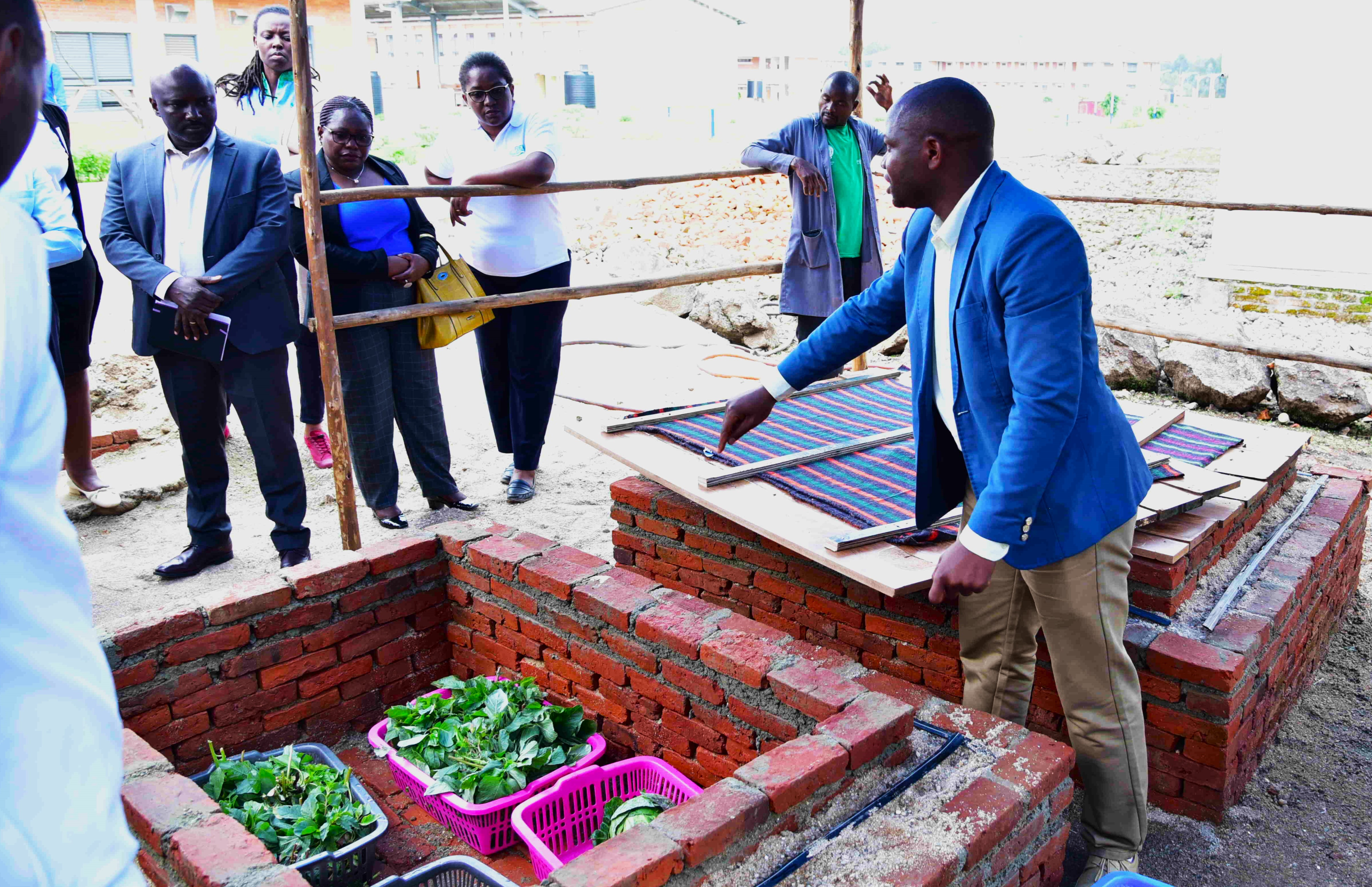
World Ozone Day: REMA recognizes students and lecturers with technologies and eco-friendly cooling solutions
Rwanda in September 2023 joined the rest of the world to mark the World Ozone Day with the theme “Montreal Protocol: Fixing the Ozone layer and mitigating Climate change”
This year’s theme emphasizes the vital role of the Montreal Protocol and its Kigali Amendment in not only protecting the Ozone layer but also mitigating climate change. World ozone day is celebrated annually on 16th September.
Rwanda celebrated Ozone Day on 18th September 2023 with students at Rwanda Polytechnic Institute of Science and Technology - Integrated Polytechnic Regional Centre (RP-IPRC) in Musanze, Northern Province, to encourage students to develop technologies and eco-friendly cooling solutions that could protect the Ozone layer from the Ozone Depleting Substances.
Students and lecturers at IPRC Musanze have developed affordable and eco-friendly cooling solutions designed to reduce food loss and mitigate climate change.
One of them is the “Zero Energy Cooling Chamber (ZECC) that functions similarly to a conventional refrigerator in the sense that the chamber ‘pushes’ heat out.
However, it is cheaper and has a higher energy efficiency than a typical fridge, as it requires no electrical energy whatsoever, just water to maintain function. The design consists of an inner chamber, a surrounding layer of wet sand, and another wall encasing it.
Zero Energy Cool Chambers stay 10-15° C cooler than the outside temperature and maintain about 90 per cent relative humidity, according to the International Journal of Engineering Research & Technology.
The United Nations Environment Program (UNEP) noted that collection of human-made greenhouse gases known as ozone-depleting substances (ODSs), including chlorofluorocarbons found in industrial products like air conditioners and refrigerators, destruct the ozone layer— a layer of gas high up in the atmosphere that helps protect us from the sun’s harmful ultraviolet (UV) rays—leading to skin cancer and weak immune systems, among other issues.
This makes the ZECC a better option as it does not produce or release any greenhouse gases.
Martine Uwera, the Programme Manager for Environment Mainstreaming and Biodiversity Management and National Focal Point of Montreal Protocol, said the new technology is both inexpensive and accessible to the local community.
“It is one of the green technologies that REMA recommends as alternatives, addressing environmental issues and climate change,” she noted.
She mentioned that when it comes to cooling foods such as vegetables, it is an alternative option to refrigerators which are harmful to the environment.
The ‘Zero Energy Cooling Chamber’ was developed by RP-IPRC in Musanze, as a practical module to help students understand one of the cheapest tools to reduce food loss and combat climate change.
Evergiste Niyonsenga, an Assistant Lecturer in Crop Production at RP-IPRC, has confirmed that the ‘Zero Energy Cooling Chamber’ project has no adverse impact on the ozone layer or the environment in general.
“It uses local materials which are environment friendly like stones, unfired bricks, along with sand and water,” he said.
The room, consisting of two walls and filled with sand, should be covered with dried banana fibres or pieces of blankets. It should be built under a shade to prevent direct sunlight. Vegetables or other fresh foods are placed inside the cooling room for three to five days.
Governor of Northern Province, Maurice Mugabowagahunde, hailed the method, saying it can address the post-harvest challenges that local farmers are going through.
Topics
More posts
Rwanda hosts the Global Environment Facility (GEF) Eastern Africa Constituency Meeting
Kigali, 22 November, 2018, Following the 6th GEF Assembly and 54th Council Meeting held in Danang, Vietnam in June 2018, the GEF focal points of the…
Top managers of industries in Prime Economic zone and Special Economic zone were briefed on new law on Environment
Kigali, 16 November, 2018 - In view of elaborating the new law on environment, LAW N°48/2018 OF 13/08/2018 LAW ON ENVIRONMENT, Rwanda Environment…
Rwanda pilots the second phase of Standardized Crediting Framework concept
Kigali, 15 November, 2018- From 14 to 15 November, 2018, REMA and the World Bank Carbon Initiative for Development (Ci-Dev) hosted a workshop to…
Rwanda to host inaugural Africa Green Growth Forum
Rwanda will host the first ever Africa Green Growth Forum, gathering more than 1,000 investors, policy makers and financial specialists from across…
Rwanda hosts Pan African Workshop on Access and Benefit Sharing of Genetic Resources
Rwanda from 28–30 August 2018 hosts a Pan African Workshop on Access and Benefit Sharing of Genetic Resources (ABS). The workshop brings together…
Rwanda incinerates harmful oils used in transformers
The Government of Rwanda through the Rwanda Environment Management Authority (REMA) started the incineration of Polychlorinated Biphenyls (PCBs) oil -…
Rwanda statement at the 6th GEF Assembly in Da Nang, Viet Nam
STATEMENT BY HEAD OF DELEGATION FROM RWANDA - COLETHA U. RUHAMYA - DIRECTOR GENERAL OF RWANDA ENVIRONMENT MANAGEMENT AUTHORITY (REMA) AT THE 6TH…
World Environment Day: winners of environmental school competitions awarded
Rwanda Environment Management Authority (REMA) has awarded winners of this year’s environmental school competitions organized in the build up to the…
Umunsi Mpuzamahanga w’Ibidukikije: Igihe kirageze ngo tuzirikane ububi bwa plastiki mu mibereho yacu
Kuri uyu wa 05 Kamena, u Rwanda rwifatanyije n’isi yose mu kwizihiza Umunsi Mpuzamahanga w’Ibidukikije, uyu ukaba ari umwanya wo kuganira ku bibazo…

